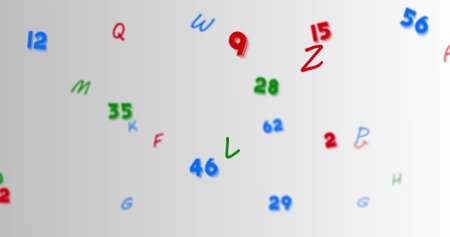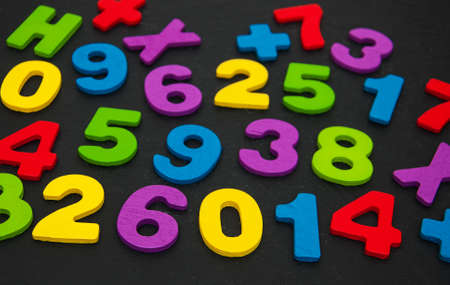Introduction to Numerology in British Context
Numerology, the ancient study of numbers and their mystical significance, has a surprisingly enduring presence within British history and culture. While it may not be as mainstream as horoscopes or other forms of divination, numerology has long captured the curiosity of Britons—from medieval scholars to modern-day enthusiasts. In the United Kingdom, attitudes towards fate and destiny often blend pragmatic scepticism with a quiet fascination for the unknown. This balance is reflected in how numerology is approached: as a tool for introspection rather than a strict guide to life’s events. Throughout history, certain British figures have reportedly consulted numerologists or been subject to public speculation regarding their ‘destined’ paths. The British tendency to approach such matters with a blend of dry wit and genuine interest makes numerology an intriguing lens through which to view both personal and national stories of destiny. As we explore the lives of famous British personalities, understanding the cultural backdrop of numerology within the UK provides valuable context for interpreting its influence on their journeys.
2. Winston Churchill: The Statesman’s Path
When delving into the numerological chart of Sir Winston Churchill, we uncover intriguing connections between his numbers and the qualities that defined his leadership during Britain’s darkest hours. Born on 30 November 1874, Churchill’s Life Path Number is calculated as follows:
| Birth Date | Calculation Steps | Life Path Number |
|---|---|---|
| 30/11/1874 | 3 + 0 + 1 + 1 + 1 + 8 + 7 + 4 = 25; 2 + 5 = 7 | 7 |
The Life Path Number 7 is often associated with analytical thinking, introspection, and a quest for deeper understanding—qualities that Churchill exemplified through his reflective speeches and strategic decision-making. This number also denotes resilience in adversity and a tendency to look beyond surface issues, which were vital attributes during the Second World War.
The Influence of the Destiny Number
By examining Churchill’s full name, “Winston Leonard Spencer Churchill,” we assign numerical values to each letter according to the Pythagorean system. Summing these values gives us another crucial figure—the Destiny Number:
| Name Component | Numerical Value | Total Sum | Destiny Number Calculation |
|---|---|---|---|
| Winston Leonard Spencer Churchill | 5+9+5+1+2+6+5 + 3+5+6+5+1+9+4 + 1+7+5+3+5+9 + 3+8+3+9+3+8+9+3+3 | 127 | 1 + 2 + 7 = 10 → 1 + 0 = 1 |
A Destiny Number of 1 resonates with leadership, ambition, and pioneering spirit—traits that mirror Churchill’s role as a guiding force for the nation. He was known for his unwavering determination and ability to inspire unity, even when faced with overwhelming odds.
A Numerological Reflection of Leadership in Crisis
The blend of Life Path 7 and Destiny Number 1 suggests a statesman who combined introspective wisdom with decisive action. In times of national crisis, these numerological influences may have contributed to Churchill’s capacity for both strategic planning and rousing oratory—balancing logic with boldness.
Cultural Resonance in British Memory
Churchill’s numerological profile aligns with the enduring image Britons hold: that of a thoughtful yet resolute leader. His path reminds us how numbers can offer a fresh perspective on historical legacies, especially when considering figures whose influence shaped not only policy but the very morale of a nation.

3. Queen Elizabeth II: The Sovereign’s Journey
When delving into the numerological destiny of Queen Elizabeth II, it is fascinating to observe how her numbers mirror both her personal characteristics and her unparalleled reign. Born on 21st April 1926, Her Majesty’s life path number is calculated as 5—a figure traditionally associated with adaptability, resilience, and an ability to embrace change. This seems fitting for a monarch whose stewardship saw Britain transition through decades of transformation, from post-war recovery to the digital age. In British numerology circles, the number 5 is often seen as a signifier of versatility and progressive thinking, qualities essential for anyone at the helm of such a storied institution. What stands out in Queen Elizabeth II’s numerological profile is not just the number itself, but its alignment with her unwavering dedication to service and stability. Despite facing numerous challenges during her reign—from constitutional crises to shifting public attitudes—the Queen’s destiny number speaks to her unique capacity for enduring and adapting while maintaining the dignity expected of a sovereign. In this sense, numerology offers a compelling lens through which to appreciate Her Majesty’s influence; it suggests that her legacy was not merely shaped by circumstance or tradition, but also by an intrinsic aptitude for leadership that was written in the numbers from birth.
4. William Shakespeare: The Bard’s Numbers
When delving into the numerological fabric of British history, few figures are as iconic as William Shakespeare. Born in 1564, the Bard’s life and legacy have intrigued scholars for centuries. But what happens when we examine his journey through the lens of numerology? By analysing the numbers present in his birth name and date, we gain a fresh perspective on how numerological forces may have shaped his creativity and enduring cultural significance.
Shakespeare’s Core Numerology Chart
| Aspect | Calculation | Numerological Value | Interpretation |
|---|---|---|---|
| Life Path Number | 23 April 1564 (2+3+4+1+5+6+4 = 25; 2+5 = 7) | 7 | The seeker, analytical, introspective, spiritual depth |
| Expression Number (Name) | WILLIAM SHAKESPEARE (calculated by assigning values to each letter) | 11/2 | Master number—visionary, inspired, influential communicator |
| Soul Urge Number | (Based on vowels in full name) | 9 | Humanitarianism, global impact, compassion through art |
The Influence of Numerology on His Creative Output
The Life Path 7 is often associated with intellectual pursuits and a desire to uncover life’s deeper mysteries—traits that echo throughout Shakespeare’s plays and sonnets. Characters such as Hamlet embody existential questioning and introspection, hallmarks of this number’s influence. Furthermore, the Expression Number 11 marks Shakespeare as a true visionary. The presence of this master number suggests an innate ability to inspire others and channel higher ideals into tangible works of art. This resonates with the transformative power his words have had on both language and literature.
Cultural Legacy Through Numbers
The Soul Urge Number 9 points to a profound yearning for universality and service to humanity. This is evident in the way Shakespeare’s themes transcend time and geography—love, ambition, jealousy, power—all explored with empathy and insight. His numerological profile indicates not only personal brilliance but also an almost fated role as a bridge between eras and cultures.
A Modern British Perspective
Within the context of British culture, Shakespeare’s numerology underscores his unique place in national identity. His works remain compulsory reading in schools across England and continue to shape the British sense of wit, drama, and poetic expression. Examining the Bard through numbers provides an alternative yet compelling explanation for why his legacy has endured so robustly—and why he remains an essential part of Britain’s cultural fabric.
5. David Attenborough: The Naturalist’s Balance
Sir David Attenborough stands as a beacon of British curiosity, compassion, and environmental stewardship. To assess his legacy through the lens of numerology is to reveal subtle harmonies between his intrinsic character and his outward mission. Born on 8 May 1926, Attenborough’s Life Path number is calculated as 1+9+2+6+5+8=31; 3+1=4. In British numerological tradition, the number 4 symbolises stability, diligence, and a deep-rooted desire for order—qualities that have defined Attenboroughs documentary storytelling and lifelong advocacy for the natural world.
The Number Four’s Steadfast Influence
The energy of four resonates with methodical work and unwavering integrity, often associated with those who create lasting foundations. Attenborough’s career at the BBC, spanning more than seven decades, has been marked by patient research and an engineering-like approach to the documentation of wildlife. Much like a classic British engineer or architect, he has built an enduring bridge between science and the public, embodying the best traditions of reasoned debate and empirical observation.
Educating through Harmony and Structure
Numerologically, individuals guided by four are natural educators—they thrive when sharing their knowledge in clear, accessible forms. This is evident in Attenborough’s approachable narration style and his emphasis on clarity over spectacle. His documentaries not only inform but also inspire collective responsibility—a trait often admired in British culture, where community values and stewardship are prized.
Destined to Inspire Change
Attenborough’s numbers suggest a destiny intertwined with responsibility—a theme echoed in his recent climate activism. In numerology, four is also linked to Earth itself: groundedness, sustainability, and practical solutions. Whether discussing endangered species or advocating for policy change at COP26 in Glasgow, Attenborough’s journey mirrors the numerological promise of building towards a sustainable future. It is as if his numerical path was always aligned with his drive to both educate and spark real-world action—an embodiment of British pragmatism married to visionary purpose.
6. Conclusion: Numerology and British Identity
Reflecting on the numerological destinies of Britain’s most celebrated figures, we find ourselves at a unique crossroads of personal journey and collective heritage. Numerology offers a lens through which to interpret the patterns that emerge in the lives of individuals who have shaped British society—from monarchs whose birth numbers mirror their sense of duty, to innovators whose names vibrate with creative energy. This interplay between individual paths and national narrative invites us to ponder what lies beneath the surface of fame and influence.
British culture is renowned for its blend of tradition and progress, stoicism and eccentricity. It is perhaps no coincidence that many iconic Britons, when examined through the prism of numerology, display destinies resonant with these cultural themes. Whether it be a Destiny Number suggesting leadership, creativity, or resilience, these attributes seem to echo the very qualities celebrated in the nation’s collective psyche.
Of course, numerology—like all systems of symbolic interpretation—should be approached as a thought-provoking tool rather than definitive science. Yet, by exploring the intersections between numbers and notable lives, we open new avenues for understanding how personal characteristics align with broader social values. In this way, numerology offers not only insight into individual journeys but also into the fabric of British identity itself.
Ultimately, while the stories of famous Britons are as varied as the country’s landscapes, numerology encourages us to consider the unseen threads connecting destiny, culture, and history. Whether sceptical or curious, we are reminded that every narrative—personal or national—may contain hidden patterns waiting to be discovered.


